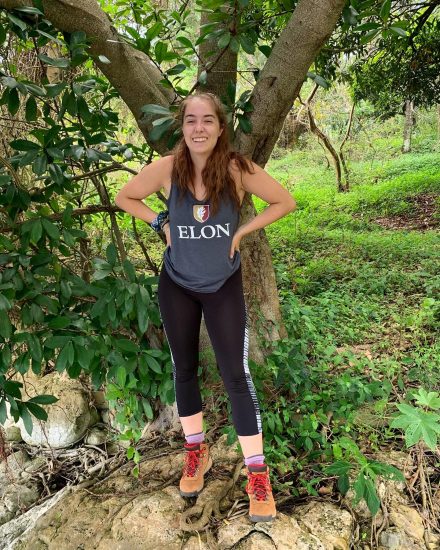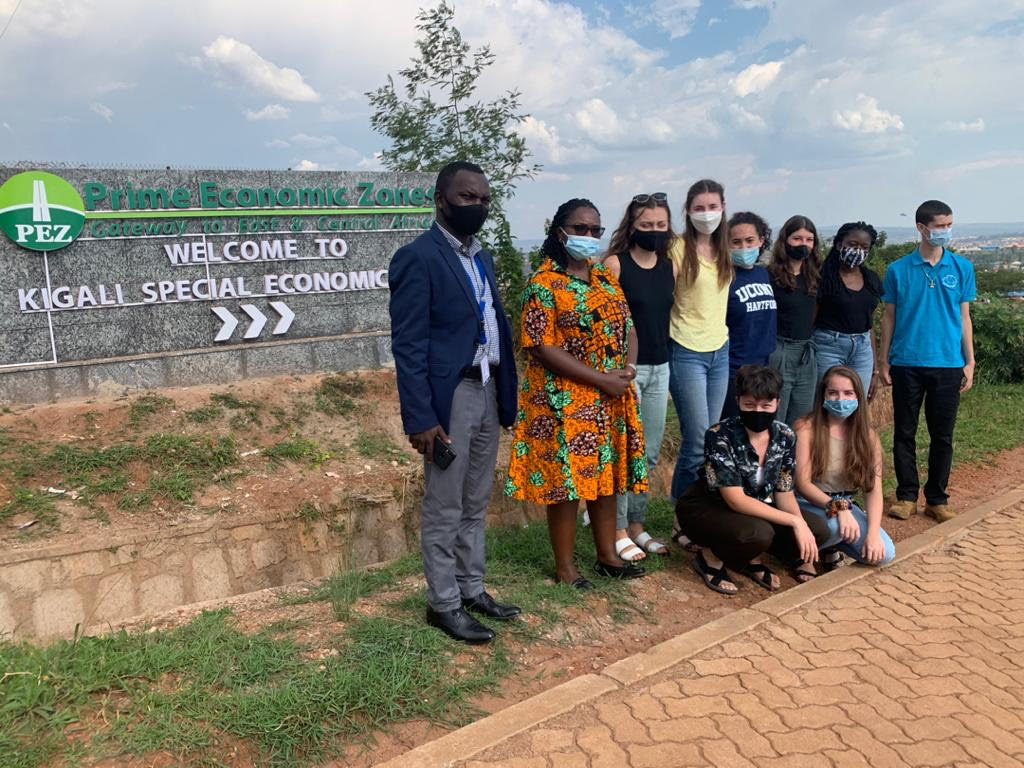Mary Thibodeau is one of 19 undergraduate and graduate students studying abroad and Studying USA this fall. "The Nineteen" is a series where we’ll take a closer look at these students’ stories to learn how global education is happening in this historic moment.
This is the second in a series from the Isabella Cannon Global Education Center titled “The Nineteen,” featuring Elon students participating in study abroad and Study USA programs this semester.
—
The majority of the more than 500 students scheduled to study abroad or Study USA this fall have instead enrolled in on-campus courses, many because their programs were canceled and some deciding to pursue global engagement in spring 2021 or a future term instead.
However, 19 undergraduate and graduate students are studying abroad or Studying USA this fall.
Students are on a range of programs, including:
- Study abroad in Germany, Rwanda, South Korea and the United Kingdom
- Study USA in Chicago and Washington, D.C.
- Business Dual Degree in Spain, France and Germany
- Physical Therapy clinical placements in Alaska, Arizona, Colorado and Pennsylvania

Global engagement during a pandemic inherently comes with more variables and ambiguity, including dynamic travel regulations, on-site health and safety considerations, risks to local vulnerable populations, and whether modifications are possible without compromising the integrity of the program.
All of this means that global engagement will look different for these 19 students – perhaps from how it ever has or ever will look again.
—
Committed to her research, Mary Thibodeau ’22 kept faith that she could study in Rwanda this fall – even if it wouldn’t be exactly to plan.

Thibodeau, a Political Science and International and Global Studies double major is studying with the School of International Training (SIT) in Kigali, Rwanda: Post-Genocide Restoration and Peacebuilding.
Thibodeau’s greatest motivation to pursue her journey abroad despite the pandemic is her passion for her research. “I am doing my research on the Rwandan genocide, and I held onto faith to have the opportunity to go. I really tried to push to go abroad, and if I was not going in the fall, I was definitely going in the spring, and Rwanda was doing consistently better than North Carolina, so why not? The borders are open, the government is letting me, so why not try to go abroad!”
Thibodeau was required to take a COVID-19 test five days prior to her flying out of the United States. Upon arriving in Rwanda, she had to submit her negative test and then take another COVID-19 test and quarantine in a hotel until she received her results. Once her test results came back negative, she was able to leave quarantine and relocate to program’s guesthouse.
In the time that Thibodeau has been in Rwanda, she has been able to experience Rwanda’s COVID-19 protocols. “Everywhere you go, there is a wash station outside with soap and water,” Thibodeau said. “There are also tons of people doing community service, so when you go into places that are a little bigger, they have your temperature taken as well. So, they just take a lot of precautions. You have to wear masks all the time.”

She also explained Rwanda’s interesting protocol for those who choose to not follow the guidelines. “They have police that are out in major areas and on roads, and it’s pretty funny to think about, but if you are caught without a mask, you are required to sleep in their local stadium as a punishment. I can only imagine how that would be if they did that at Elon! It has been shown to be effective though, and no one seems to be fighting against masks, which is supported by the sense of community wearing masks creates for others.”
One component of Thibodeau’s experience that was affected by COVID-19 was that she was no longer able to participate in a homestay. “I would have loved to do a homestay, but being in the guesthouse with all of the program participants has really been able to make this a more meaningful shared experience, by being able to walk to class together, travel together, and make more bonds,” said Thibodeau.
Thibodeau has also been supported by Associate Director for Global Diversity and Inclusion Allegra Laing.
“Shout out to Allegra Laing, singularly,” Thibodeau said. “She has been a constant support for me. She was asking me how I was feeling and talked me through every plan possible in case I had to cancel my program last-minute. She was just super helpful and was able to help me really decrease my stress.”

As for the rest of her time abroad, Thibodeau is looking forward to all of the traveling she will get to experience. A portion of the experience will have her travel to Uganda to dive deeper into her research.
Thibodeau is conducting two research projects: an independent study project and an ongoing research project at Elon. The first looks at reconciliation projects and policies in Rwanda. The second is mentored by Assistant Professor in Political Science and Policy Studies Damion Blake and examines the role of the genocide in Rwanda. Together, Thibodeau and Blake are working to better understand how post-genocide methods used in Rwanda could be used by other countries recovering from crises.

In the meantime, Thibodeau has enjoyed getting to know her local community in Kigali. “We have already visited three memorials,” Thibodeau said. “It has all been very emotional – it has all been beyond what you can learn through literature. I have been very grateful to meet with these local leaders and learn more about what their communities have been through and then share their lives with us.”



